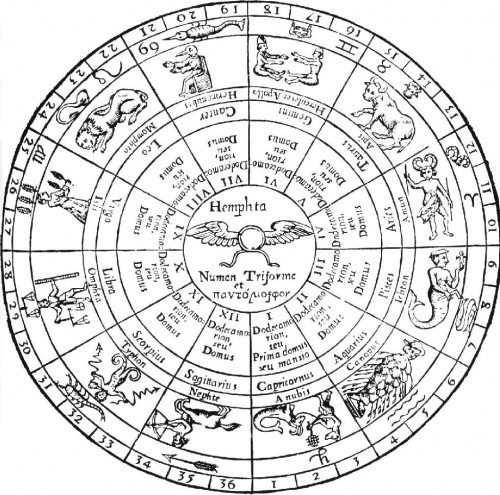Hey, baby, what’s your sign?
So, according to astronomers, we’ve been fucking fools. Gotcha, suckers, you thought you were an Aries, nope, turns out you only saw characteristics in yourself because you wanted to. Really, you’re a Pisces, or whatever.
But why is this important? If Facebook posts (or any popular media outlet) are any indication of anything, people care. People are pissed that their astrological sign may have been wrong. Most of my friends on Facebook are Giant-type people, or, at the very minimum, grad school social science/humanities types, by which I mean, they’re generally critical thinkers. So am I. And yet, everyday, I hit my widget button (F4) and read my horoscope. I’m going to approach this horoscope issue two-fold: first, why people care, then, why people care. That sounds tautological, and maybe it is, but that’s what I’m doing.
“These Little Love Letters”
 Katherine Mansfield to Princess Bibesco, March 24, 1921:
Katherine Mansfield to Princess Bibesco, March 24, 1921:
Dear Princess Bibesco,
I am afraid you must stop writing these little love letters to my husband while he and I live together. It is one of those things which is not done in our world.
You are very young. Won’t you ask your husband to explain to you the impossibility of such a situation.
Please do not make me have to write to you again. I do not like scolding people and I simply hate having to teach them manners.
Yours sincerely,
Katherine Mansfield
Bernhard the Ever-Quotable
From Thomas Bernhard’s The Loser:
We study better in hostile surroundings than in hospitable ones, a student is always well advised to choose a hostile place of study rather than a hospitable one, for the hospitable place will rob him of the better part of his concentration for his studies, the hostile place on the other hand will allow him total concentration, since he must concentrate on his studies to avoid despairing, and to that extent one can absolutely recommend Salzburg, probably like all other so-called beautiful towns, as a place of study, of course only to someone with a strong character, a weak character will inevitably be destroyed in the briefest time.
No, Fuck You
Ah, the confrontational interview. I had this idea it did exist. Then where has it gone? The jostle, cough, the lip-curl. And without it, haven’t we lost something? To discuss, to pry and fling, not what we’re instructed or allowed (a la Tom Cruise [and many others] who actually inculcate the interviewer in advance—you will only ask these very questions). And so then we have nothing more than a softball game played with bats made of limp, leaking sausages. Toy dogs smelling each other’s asses. A farce.
Because we lose surprise, abrupt honesty, what ego and anger can do: make us blurt out something we might regret, or possess, or shock or please our own self with, something true. But some of this comes down to the medium. Over email, my gods, we can all blurb profound. We cheat, and suddenly I am quoting Beckett and know something about mortgage-backed securities, MFA statistics, and the best clothing option for a casual late fall round of bocce ball (Cabela’s MicroDown soft shell, in hue woodland). An interview over the phone, you might have notes or might be naked (a clear advantage for flow of thought). You don’t see the interviewer at all, the nonverbals, the power of space, but at least it is real time and has potential for nasty, like when Terry Gross asks Gene Simmons about wearing a studded codpiece:
Gene Simmons: No, it holds in my manhood.
Terry Gross: [laughs] That’s right.
Gene Simmons: Otherwise it would be too much for you to take. You’d have to put the book down and confront life. The notion is that if you want to welcome me with open arms, I’m afraid you’re also going to have to welcome me with open legs.
Terry Gross: That’s a really obnoxious thing to say.
The expurgation of the clitoris in the diary of Anne Frank
While we’re on the topic of the modification of Huck Finn, here’s something interesting posted on the Give a Fig (Les Figues Press) blog:
The effacement of the clitoris extends even to Anne Frank’s Diary of a Young Girl. When the unabridged edition of the diaries were released in 1995, the 50th anniversary of her death, they included the previously deleted passages that contained some of Anne’s negative remarks about her housemates and parents as well as a lengthy entry from March 24, 1944 in which she describes her vulva, clitoris, and vagina from the perspective of her own fifteen year old gaze:
“…Until I was eleven or twelve, I didn’t realize there was a second set of labia on the inside, since you couldn’t see them. What’s even funnier is that I thought urine came out of the clitoris…When you’re standing up, all you see from the front is hair. Between your legs there are two soft, cushiony things, also covered with hair, which press together when you’re standing, so you can’t see what’s inside. They separate when you sit down and they’re very red and quite fleshy on the inside. In the upper part, between the outer labia, there’s a fold of skin that, on second thought, looks like a kind of blister. That’s the clitoris…”
Bellow on Auden, Austrians, Bernhard, Cons, and Cold-Owl Trips
 Saul Bellow was an old-fashioned man of letters. Part of what that means is that he traded a lot of letters with other people and seemed to have literary aspirations for his letters. I read a review of his newly collected letters which said that since people don’t write letters anymore, this was probably the last rich collection of letters we’d be seeing from a literary man. I doubt this is true, considering the generation after him figures prominently in his letters. I doubt Philip Roth will allow the posthumous publication of his letters, but I bet his letters will rival Bellow’s letters, some of which are to Roth. I also know that writers even from my own generation are still trading letters with the likes of, say, Don DeLillo. And I’ve seen the treasure trove of Raymond Carver’s correspondence in the Charvat collection at the Ohio State University, where I had to sign a form saying I wouldn’t tell you what was in them, but, listen hot-shit literary biographers interested in Carver’s era: There is stuff in there that will make your hair stand on end. There was a fair bit of nastiness flying about our nation’s postal thoroughfares in Carver days.
Saul Bellow was an old-fashioned man of letters. Part of what that means is that he traded a lot of letters with other people and seemed to have literary aspirations for his letters. I read a review of his newly collected letters which said that since people don’t write letters anymore, this was probably the last rich collection of letters we’d be seeing from a literary man. I doubt this is true, considering the generation after him figures prominently in his letters. I doubt Philip Roth will allow the posthumous publication of his letters, but I bet his letters will rival Bellow’s letters, some of which are to Roth. I also know that writers even from my own generation are still trading letters with the likes of, say, Don DeLillo. And I’ve seen the treasure trove of Raymond Carver’s correspondence in the Charvat collection at the Ohio State University, where I had to sign a form saying I wouldn’t tell you what was in them, but, listen hot-shit literary biographers interested in Carver’s era: There is stuff in there that will make your hair stand on end. There was a fair bit of nastiness flying about our nation’s postal thoroughfares in Carver days.
But I digress. Bellow’s letters are worth your time. They’re occasionally cranky. He was a political bird, to be sure, and it served his writing career and the writing career of others he helped. This isn’t the best stuff. The best stuff comes in late-life letters to true pals about matters that aren’t literary. Even in his eighties, the guy had a tremendous psychological acuity, and he always had the knack for special language (he tells a correspondent that he is awaiting a letter “in which you would be a little more recognizable than the Oscar of ‘cons’ and cold-owl trips to see a girl who fucks.”)
We recently Bernhard-obsessed types (surely I’m not the only one) will be interested in this:
As for Thomas Bernhard, he is a very strange bird indeed. I read him with respect and even admiration but he doesn’t reach my warmer feelings. What he does reach is my own bottomless hatred of the Nazis, especially the Austrian ones. He would have you think that virtually all Austrians were and remain Nazis. I see no reason to disagree. When I read Karl’s lovely poem about Auden’s grave I wondered why Auden should have wished to pass his last years [at Kirchstetten] in the society of such creeps. I seem to recall that he even addressed affectionate lines to some of them.
Yuknavitch, Lidia. The Chronology of Water (Hawthorne, 2011)

“I’ve read Ms. Yuknavitch’s book The Chronology of Water, cover to cover, a dozen times. I am still reading it. And I will, most likely, return to it for inspiration and ideas, and out of sheer admiration, for the rest of my life. The book is extraordinary..”
–CHUCK PALAHNIUK, author of Fight Club and Pygmy“The Chronology of Water’s central metaphor works beautifully: we all keep our heads above water, look around, and enjoy our corporeal life despite all the reasons not to; beyond that, the book is immensely impressive to me on a human level: the narrator/speaker/protagonist/author emerges from a seriously hellish childhood and spooky adolescence into a middle age not of bliss, certainly, but of convincing engagement and satisfaction.”
–DAVID SHIELDS, author of Reality Hunger: A ManifestoMore praise here
Watch the book trailer here
Available for preorder now until April 1 from Powells or Amazon
I Know Not of War: The Responsibility of the Writer

Over at the Hayden’s Ferry Review blog, Alan Stewart Carl wrote a really interesting essay in response to my posts about race, class, Best American Short Stories, and publishing at large. In his essay, he grapples with his responsibility as a writer who self-identifies as a white, middle class man.
He writes:
Yes, there is plenty all writers can do to change things on the editorial front and on the promotional front and on the educational and societal front, too. But what about the writing itself? Should white, middle-class male writers feel any pressure to write about people and experiences outside of those they intimately know? Would doing so even help matters?
Ultimately, he concludes that as a writer he has a responsibility not only to himself and the stories he wants to tell but also to the outside world because, “writing towards the outside world seems like a good way to proceed forward.”
“We Are Not Experiencing a Short Story Renaissance”
So says Cathy Day, author of The Circus in Winter, and fiction writing teacher at Ball State University (and formerly in the M.F.A. program at the University of Pittsburgh.) The reason the story has become a dominant form is that the university workshop encourages the writing of stories, not the writing of novels. Her quite reasonable questions: “Do students write stories because they really want to or because the workshop model all but demands that they do? If workshops are bad for big things, why do we continue to use them?”




